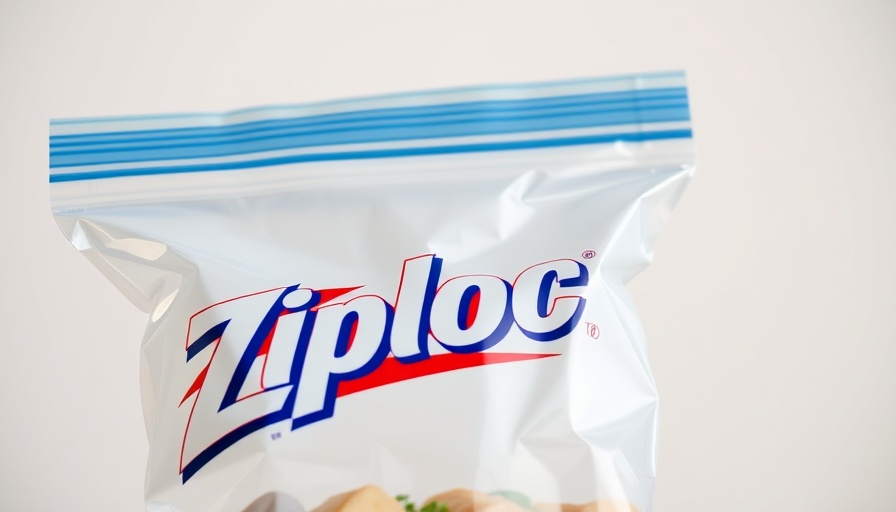
Understanding the Microplastics Controversy in Everyday Products
A recent class action lawsuit against S.C. Johnson highlights serious concerns regarding the so-called 'microwave safe' and 'freezer safe' claims of Ziploc plastic bags. The legal action posits that these claims mislead consumers about the safety of the products and fail to disclose potential health risks associated with microplastics.
According to the lawsuit, Ziploc products are primarily made from polyethylene and polypropylene - materials known to release microplastics when subjected to extreme temperatures, either in microwaves or freezers. This brings into question the validity of their marketing assertions. Millions of consumers, including those preparing meals for children, trust these products based on their advertised safety.
The Implications for Eco-Conscious Consumers
For boutique hospitality professionals, understanding the consumer’s perspective on sustainability is vital. As more guests become aware of environmental issues, such as plastic pollution, they may seek lodging that aligns with their values. The Ziploc lawsuit exemplifies the discontent brewing amongst consumers who feel deceived by brands that are not forthcoming about the materials used in their products.
As this situation develops, eco-lodgers and small-scale hoteliers should anticipate changes in consumer expectations. Incorporating sustainable practices can not only enhance guest satisfaction but also bolster business reputation. For instance, opting for containers made from biodegradable materials rather than traditional plastics demonstrates a commitment to environmental stewardship, appealing to conscious travelers.
Microplastics: A Growing Concern in the Hospitality Sector
Microplastics are omnipresent; studies indicate that they infiltrate food chains and ecosystems. For the hospitality industry, the implications can be severe. Increased awareness of chemical leachates from plastic materials could potentially deter guests who prioritize health and environmental integrity.
In related lawsuits against companies like Rubbermaid, claims have emerged asserting that similar containers intended for food storage and preparation might pose the same risks. This presents an opportunity for boutique hospitality operations to shift towards sustainable kitchen supplies, thus establishing a distinct market advantage.
Practical Insights: Transitioning to Sustainable Practices
Hospitality professionals can take actionable steps towards sustainability in response to the microplastics controversy. Here are several strategies:
- Supply Chain Reassessment: Review the products used within your establishment, including kitchenware and packaging. Lean towards alternatives that prioritize health as well as environmental advocacy.
- Educate Staff and Customers: Informing your team and guests about why sustainability matters can increase customer loyalty and bolster your brand image as an eco-conscious establishment.
- Partner with Eco-Friendly Suppliers: Establish partnerships with companies producing plant-based or sustainable packaging alternatives that won’t leach harmful materials.
Amplifying Climate Awareness Through Your Business
The microplastics debate serves as a crucial reminder for all stakeholders in the hospitality industry to remain vigilant and prioritize sustainability. Brands that proactively innovate in response to consumer demand for transparency and renovation will not only survive but thrive. By implementing eco-friendly initiatives, you set an example and contribute to broader climate action efforts.
As guests become more discerning about their environmental footprint, boutique hospitality providers can pave the way by embedding sustainability in their very fabric. This not only enhances guest experience but serves a compelling narrative about climate responsibility.
A Call for Industry Change
If you operate an eco-conscious lodging business, consider leading the charge in adopting practices that diminish reliance on single-use plastics. Understand that this lawsuit reflects a burgeoning consumer mindset that values the intersection of health and ecological integrity. Each step towards sustainable operation not only aligns with broader environmental goals but also distinguishes your business in an increasingly competitive landscape.
 Add Row
Add Row  Add
Add 


 Add Row
Add Row  Add
Add 

Write A Comment